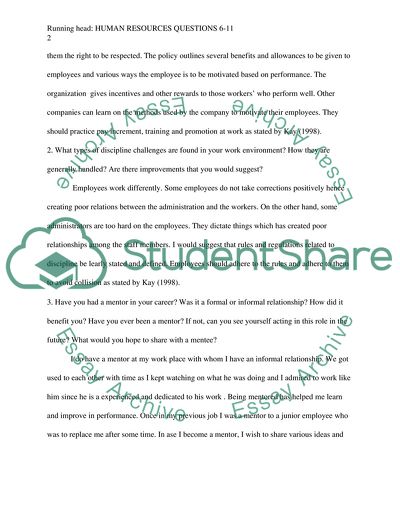Human Resources Questions Coursework Example | Topics and Well Written Essays - 1000 words. https://studentshare.org/human-resources/1777990-human-resources-questions-6-11
Human Resources Questions Coursework Example | Topics and Well Written Essays - 1000 Words. https://studentshare.org/human-resources/1777990-human-resources-questions-6-11.


